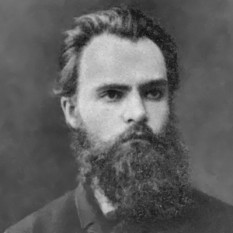Franz Xaver Scharwenka (6 January 1850, Samter, Prussia (now Szamotuły, Poland) - 8 December 1924, Berlin, Germany) was a German pianist and composer. He founded his own music school in Berlin and New York City, and also organised concert series. He was generally known by his middle name Xaver.
With his family, he moved to Berlin in 1865 where he studied music under Theodor Kullak. His older brother (Ludwig) Philipp Scharwenka (1847–1917) was also a composer and teacher of music.
Scharwenka did not start formal music studies until he was 15, although he began learning to play the piano by ear when he was 3. He began touring as a concert pianist at 24, in 1874, and was praised for the beauty of his tone. He was a renowned interpreter of the music of Chopin.
In 1881 Scharwenka founded his own music schools in Berlin, and from 1891 to 1898 directed his Scharwenka Music School in New York City. In 1893 the Berlin Scharwenka Conservatory was united with the Klindworth Conservatory, and in 1898 he returned there as Director, from New York. In 1914, with W. Petzet, he opened a School of Music with pianoforte teachers' seminary attached. Among pianists who received some instruction from him were José Vianna da Motta, Fridtjof Backer-Grøndahl and Selmar Jansen. His Methodik des Klavierspiels was published in Leipzig in 1907.
In addition to his activities as a pianist, composer and founder of a music school, he also organized a series of concerts, focusing mainly on works by prominent composers of the century, including Beethoven, Berlioz and Liszt. Scharwenka made several recordings for Columbia Records in c 1905 and c 1908, including works of his own, as well as Chopin, Mendelssohn, Weber and Liszt: his account of Chopin's Fantaisie-Impromptu (op. posth. 66) is admired. There are also Welte-Mignon piano rolls, including the Chopin A flat Valse op 42, and the F minor Fantaisie (op. 49), his performance of which was famous.
charwenka's own compositions include an opera (Mataswintha), a symphony, 4 piano concertos, chamber music (all with piano part) and numerous piano pieces. The four piano concerti are substantial works. The first, in B flat minor, Op. 38, was completed in 1874 and premiered in the following year. Originally written as a solo piano fantasy, Scharwenka was dissatisfied, and reworked it with orchestra into this form. Liszt accepted the dedication and performed it in Berlin.[3] Its first recording was made in 1968 with Earl Wild and the Boston Symphony Orchestra under Erich Leinsdorf. The Fourth concerto, in F minor Op. 82 (1908), was premiered on October 18, 1908 in the Beethovensaal, Berlin, with Scharwenka's student Martha Siebold as the soloist and the composer himself conducting.
Scharwenka's works were neglected for some years after his death; however, his "Polish Dance No. 1" in E-flat minor, Op. 3, No. 1 remained enormously popular. Since the mid-1990s, however, interest in his music has been rekindled, and recordings of most of his works are now available commercially. The recording of his Fourth Piano Concerto played by Stephen Hough with the City of Birmingham Symphony Orchestra conducted by Lawrence Foster was voted Record of the Year by the British music magazine Gramophone in 1996. His Symphony in C major, Op.60 received its CD premiere in 2004. .
您可以通过最好的音乐搜索引擎找到信息 - Muzlan.top 😊第Xaver Scharwenka页上有应要求提供的所有材料“ Xaver Scharwenka”
当然是。您可以在页面Xaver Scharwenka上收听曲目
当然是。您可以在页面Xaver Scharwenka上下载曲目
该页面可通过查询找到: Xaver Scharwenka song download, Xaver Scharwenka mp3 download, Xaver Scharwenka flac, Xaver Scharwenka songs download, Xaver Scharwenka remix



